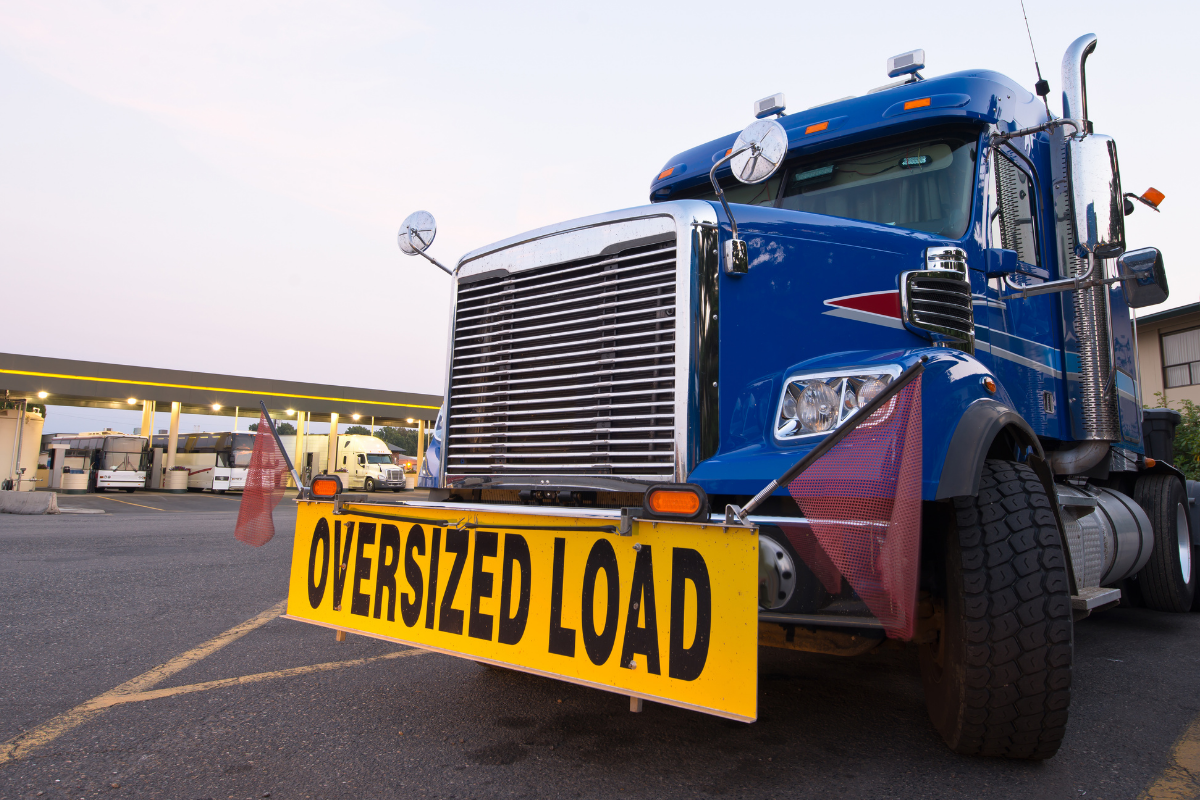Shipping heavy or oversized freight can present unique challenges for your business. Standard shipping methods often fall short when dealing with unusually large, bulky, or high-weight shipments. For companies that need to move industrial equipment, construction materials, or other oversized cargo, partnering with a reliable full truckload (FTL) carrier is essential. FTL carriers offer dedicated transport, specialized equipment, and the expertise required to handle these complex shipments efficiently.
Choosing the right partner can make the difference between timely delivery and costly delays, safety risks, or damage to goods. Understanding what to look for in a carrier and how to prepare for shipping oversized freight can help businesses navigate this intricate process with confidence.
Why Full Truckload Carriers Are Ideal for Heavy or Oversized Freight
Full truckload carriers are specifically designed to transport a single shipment per truck. This is particularly advantageous for heavy or oversized freight for several reasons:
Dedicated Equipment: FTL carriers often have trucks equipped to handle oversized loads, including flatbeds, step decks, and extendable trailers.
Minimized Handling: Because the truck carries only one shipment, there is less risk of damage caused by multiple loading and unloading points.
Direct Routes: FTL shipments typically move directly from origin to destination, reducing transit times and avoiding logistical complications associated with LTL shipments.
Regulatory Compliance: Transporting oversized freight often requires permits and compliance with federal and state regulations. Experienced FTL carriers manage this paperwork efficiently.
By relying on a full truckload carrier, businesses can avoid the pitfalls of trying to adapt standard shipping methods to shipments that require special attention.
Assessing Carrier Reliability
Not all full truckload carriers have the experience or infrastructure to handle heavy or oversized freight safely. When evaluating carriers, businesses should consider:
Experience with Oversized Loads: Ask about the carrier’s history in handling heavy or oversized shipments. A carrier familiar with these types of freight is better prepared to manage weight restrictions, route planning, and loading challenges.
Fleet Capabilities: Ensure the carrier has the right equipment for your shipment, whether it’s a flatbed, lowboy, or extendable trailer. Availability of specialized trucks is critical for heavy or oversized freight.
Safety Record: Examine the carrier’s safety record and insurance coverage. Oversized shipments carry higher risk, making it essential that the carrier prioritizes safety protocols.
Customer References: Speak with other businesses who have shipped similar freight. Testimonials can provide insight into the carrier’s reliability and professionalism.
A reliable FTL partner brings peace of mind, ensuring that even the most challenging shipments reach their destination safely and on time.
Understanding the Logistics of Oversized Freight
Shipping oversized freight isn’t just about putting it on a larger truck. Proper planning involves several key considerations:
Weight and Dimension Limits: Each state has regulations regarding the maximum weight and dimensions allowed on highways. FTL carriers must account for these limits and secure necessary permits.
Load Distribution: Proper weight distribution ensures safety during transport. Carriers experienced with heavy freight understand how to load and secure shipments to prevent accidents or damage.
Route Planning: Oversized loads may be restricted from certain roads, bridges, or tunnels. Full truckload carriers plan routes to avoid obstacles and minimize delays.
Handling and Securing Cargo: Specialized tie-downs, tarps, and load stabilization equipment are often required. Carriers with expertise in securing heavy freight reduce the risk of damage during transit.
By working closely with your FTL carrier, businesses can anticipate challenges and ensure that shipments are handled safely and efficiently.
Communication and Tracking
Effective communication is crucial when shipping heavy or oversized freight. Delays, route changes, or unforeseen issues can have significant consequences. Reliable FTL carriers provide:
Real-Time Tracking: GPS tracking and shipment updates allow businesses to monitor the progress of their freight and plan around arrival times.
Proactive Problem-Solving: Experienced carriers communicate delays or issues promptly and suggest solutions, reducing potential disruptions.
Dedicated Support: Having a point of contact who understands the specifics of oversized freight ensures smooth coordination from pickup to delivery.
Transparent communication between shipper and carrier builds trust and improves overall shipping efficiency.
Planning for Seasonal and Peak Shipping
Heavy or oversized freight doesn’t only face logistical challenges; timing is also critical. Seasonal fluctuations, peak construction periods, or manufacturing cycles can increase demand for specialized transportation. Partnering with an FTL carrier who offers flexibility and capacity planning can help businesses:
Secure trucks during high-demand periods
Avoid last-minute surcharges for oversized shipments
Ensure timely delivery to meet production deadlines or project milestones
Planning ahead and maintaining a relationship with a reliable carrier can mitigate the risks associated with peak shipping periods.
Cost Considerations
Shipping heavy or oversized freight can be expensive if not managed properly. Costs can be influenced by:
Weight and Size: Heavier and larger shipments often require specialized equipment and permits, which add to the cost.
Distance and Route Complexity: Longer routes or ones that avoid restricted areas may require additional fuel and driver hours.
Time Sensitivity: Expedited shipments or guaranteed delivery dates may increase fees.
While full truckload carriers may appear more costly upfront, they often provide better value for oversized freight. By reducing damage risk, minimizing delays, and ensuring compliance, businesses can save money compared to attempting to ship oversized freight through LTL carriers or multiple smaller shipments.
Best Practices for Partnering with FTL Carriers
To maximize the benefits of full truckload carriers for heavy or oversized freight, businesses should adopt best practices such as:
Early Engagement: Contact carriers well in advance of shipment dates, especially for oversized freight that requires permits or route planning.
Detailed Shipment Information: Provide precise measurements, weight, and handling requirements so carriers can prepare the right equipment and staffing.
Regular Communication: Maintain consistent communication with the carrier to monitor shipment progress and address any potential issues.
Performance Review: Evaluate the carrier’s performance after each shipment to ensure reliability and continuous improvement.
Flexible Scheduling: Work with carriers that can adjust to unexpected changes in shipment volume, timing, or route constraints.
By following these practices, businesses can build a partnership that ensures consistent, reliable transport of heavy or oversized freight.
Industry Applications
Full truckload carriers are indispensable across several industries that regularly ship heavy or oversized freight:
Construction: Machinery, steel beams, and other large building materials require specialized handling and direct transport to job sites.
Manufacturing: Large components and equipment must reach factories without damage or delays.
Energy and Utilities: Wind turbine blades, transformers, and other oversized energy infrastructure components require careful planning and dedicated trucks.
Retail and Wholesale: Large shipments of furniture, appliances, or other bulky consumer goods benefit from FTL shipping to avoid delays and damage.
In each case, partnering with an experienced FTL carrier ensures shipments move safely, efficiently, and in compliance with regulations.
Leveraging Technology for Oversized Freight
Modern full truckload carriers are increasingly integrating technology to improve the shipping experience for heavy and oversized freight. Some of these advancements include:
Route Optimization Software: Helps carriers identify the safest and fastest paths for oversized shipments, avoiding restricted roads and low-clearance obstacles.
Load Monitoring Sensors: Provide real-time data on weight distribution, temperature, and stability of freight, ensuring safe transit.
Automated Permit Management: Streamlines the process of obtaining necessary transport permits, saving time and reducing human error.
Businesses that partner with tech-savvy FTL carriers gain visibility, efficiency, and peace of mind, especially for challenging shipments.
Take the Hassle Out of Heavy and Oversized Freight with TOP Worldwide
Shipping heavy or oversized freight doesn’t have to be complicated. With the right full truckload carrier, your shipments can move safely, efficiently, and on time—every time. That’s where TOP Worldwide comes in. Our experienced team and extensive carrier network specialize in handling large, bulky, and high-weight shipments with dedicated trucks, advanced tracking technology, and regulatory expertise.
Whether you’re moving construction equipment, industrial machinery, or oversized consumer goods, we make sure your freight gets where it needs to go—without the stress. Partner with TOP Worldwide today to streamline your logistics, reduce risk, and gain peace of mind during every shipment.
Contact us now to schedule your oversized freight shipment or to learn more about how our full truckload services can support your business growth.
 Jeff Berlin
Jeff Berlin
is the Chief Operating Officer of E.L. Hollingsworth & Co. and serves as the Senior Operations Executive for TOP Worldwide and Native American Logistics. With over 30 years of experience leading logistics and trucking companies, he brings deep industry expertise to his role. Jeff is also a CDL-A driver and a private pilot. Contact Jeff at jberlin@elhc.net.


